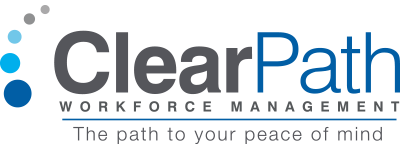Do You Ask About Previous Salary History? It May be Illegal or Soon Will Be.
The laws governing candidate interview questions are changing, and salary negotiations may never be the same. Many state and local legislatures are banning employers from asking job candidates about their previous salary history. Legislators have been rethinking the prudence of this query, given the role it may play in perpetuating gender and racial disparities in compensation.
Renee Fink, CEO ClearPath Workforce Management, says,
“If there’s one thing job seekers are most apprehensive about, it’s answering the question: ‘How much did you make in your last job?’ Today’s organizations are rethinking this question.”
She believes, “salaries should be based on market values. They should be based on what the value of the position is to an employer, and they shouldn’t be variable depending on who the applicant is.” Soliciting salary history can perpetuate discriminatory pay gaps. These new laws are an effort to reduce pay inequity, particularly for women and minorities.
Here are the states, cities, and jurisdictions where the salary question is banned or set to be banned soon, in some capacity:1
| US State & Territories |
Change |
Law Effective | ||
| California | Banned private and public employers from asking about a candidate’s pay history. | January 2018 | ||
| Connecticut | Employers may not ask about an applicant’s pay history, unless it was voluntarily disclosed. | January 2019 | ||
| Delaware | Banned all employers from asking candidates about their salary history. | December 2017 | ||
| Hawaii | Employers are prohibited from asking about applicants’ salary histories, and they cannot rely on that information unless volunteered by the applicant. The law does not apply to internal applicants. | January 2019 | ||
| Massachusetts | Prohibited all employers from inquiring about a candidate’s pay history. | July 2018 | ||
| Oregon | Banned all employers for inquiring about a candidate’s salary history. | January 2019 | ||
| Puerto Rico | Puerto Rico banned employers from inquiring about a candidate’s pay history. | March 2018 | ||
| Maryland | Current bill floating around its legislature that would enact a similar ban. | No determination | ||
| New Jersey | Agencies and offices are prohibited from asking job applicants for their compensation history or investigating the prior salaries of applicants. | February 2018 | ||
| New York | State agencies and departments may not request salary history from applicants until after an offer of employment is extended. If an applicant’s prior compensation is already known, that information may not be relied upon in determining such applicant’s salary, unless required by law or collective bargaining agreement. | January 2017 | ||
| Vermont | Employers may not request applicants’ pay history. If that information is volunteered, employers may only confirm it after a job offer has been made. | July 2018 | ||
| Michigan | Michigan has prohibited salary history bans in the state. Local governments may not regulate the information that employers must request, require, or exclude on an application for employment or during the interview process. | June 2018 | ||
| Wisconsin | Local governments may not prohibit employers from soliciting the salary history of prospective employees. | April 2018 |
| US Cities |
Change |
Law Effective | ||
| Chicago | City departments may not ask for applicants’ salary histories. | April 2018 | ||
| Louisville, KY | City agencies may not ask for applicants’ salary histories. | May 2018 | ||
| New Orleans | Banned inquiries about all city departments and employees of contractors who work for the city. The rule is already in effect, but, in this case, it only impacts individuals who are interviewing to work for the city of New Orleans. | January 2017 | ||
| New York City | Banned public and private employees from asking about a candidate’s pay history. | October 2017 | ||
| Philadelphia | Banned the salary history question for all employers. The rule was supposed to take effect on May 23, 2017 but a judge halted it temporarily due to a lawsuit from the Chamber of Commerce. | Halted | ||
| Pittsburgh | Banned city agencies from asking about candidates’ pay history. The rule is effective immediately, but only affects city employees. | January 2017 | ||
| San Francisco | Prohibits employers from both asking and considering a job applicant’s current or prior compensation in setting pay. It also bars them from disclosing a current or former employee’s salary information without their consent. | July 2018 |
ClearPath Workforce Management is keeping pace with all these employment changes so you don’t have to.
Let ClearPath assist your organization with contingent worker employment. When ClearPath is your Employer of Record (EOR), we employ your W-2 contingent workers, and take over Human Resources and Payroll functions. We manage all paperwork, including employment agreements, worker eligibility, and statutory enrollment documents. Your organization will realize many benefits, such as:
- Time Savings– Our EOR solution can free up your time for managing your core business and not your contingent workforce
- Money Savings– ClearPath clients save, on average, 15 – 35% on their payroll costs by switching from a traditional staffing firm to our EOR services
- Quickly ramp up staff– We shorten the time it takes to get your new workers onboard and productive, by handling all the details for you
- Stay compliant with legislation– Local, state, and federal laws can change without warning – we stay up-to-date on legislation so you don’t have to
Work with a leader in the industry for outsourced Human Resources and Payroll functions associated with W-2 contingent workers. Get the benefits of hiring contingent workers without the potential risks. Use our helpful online calculators to determine your potential savings. Let ClearPath be the path to your peace of mind.
Source:1 https://www.hrdive.com/news/salary-history-ban-states-list/516662/
- Written by: Connie Wendt
- Posted on: July 24, 2018
- Tags: COMPENSATION, EMPLOYMENT COMPLIANCE, EMPLOYMENT PRACTICES, GENDER PAY GAP, HIRING PROCESS, PREVIOUS SALARY, PRIOR PAY BAN, SALARY NEGOTIATIONS

